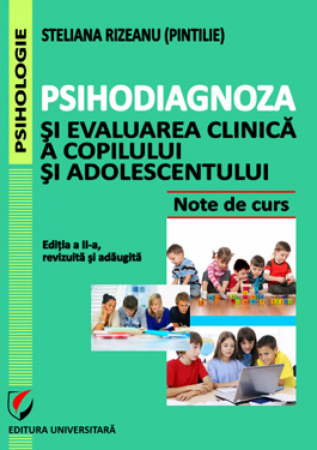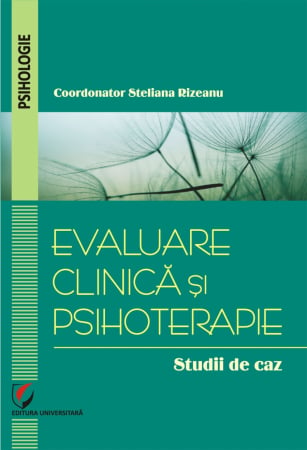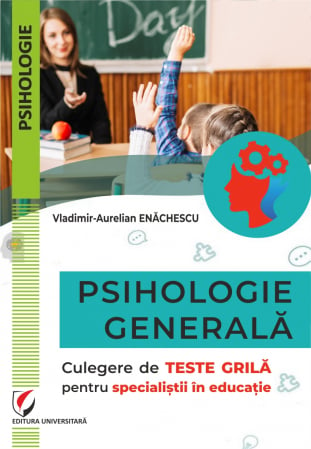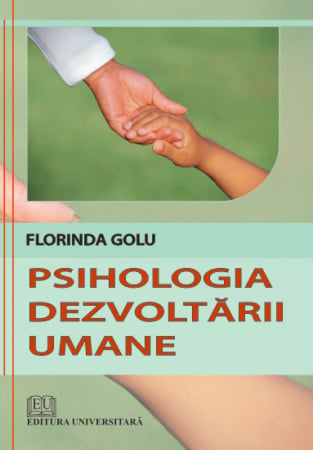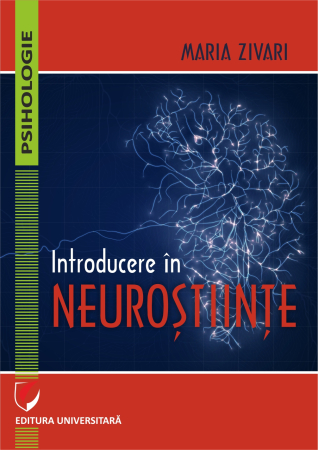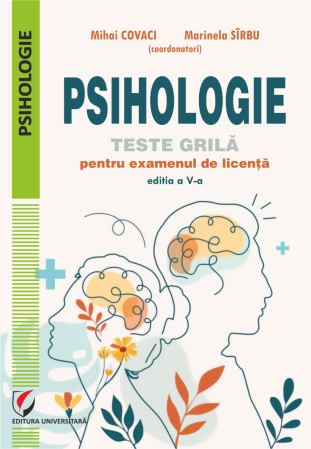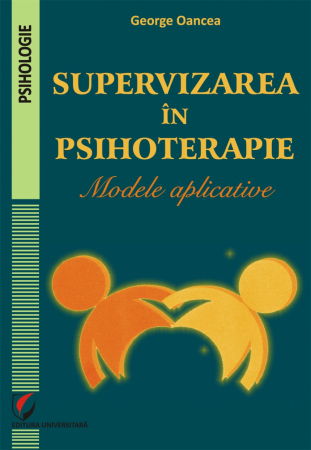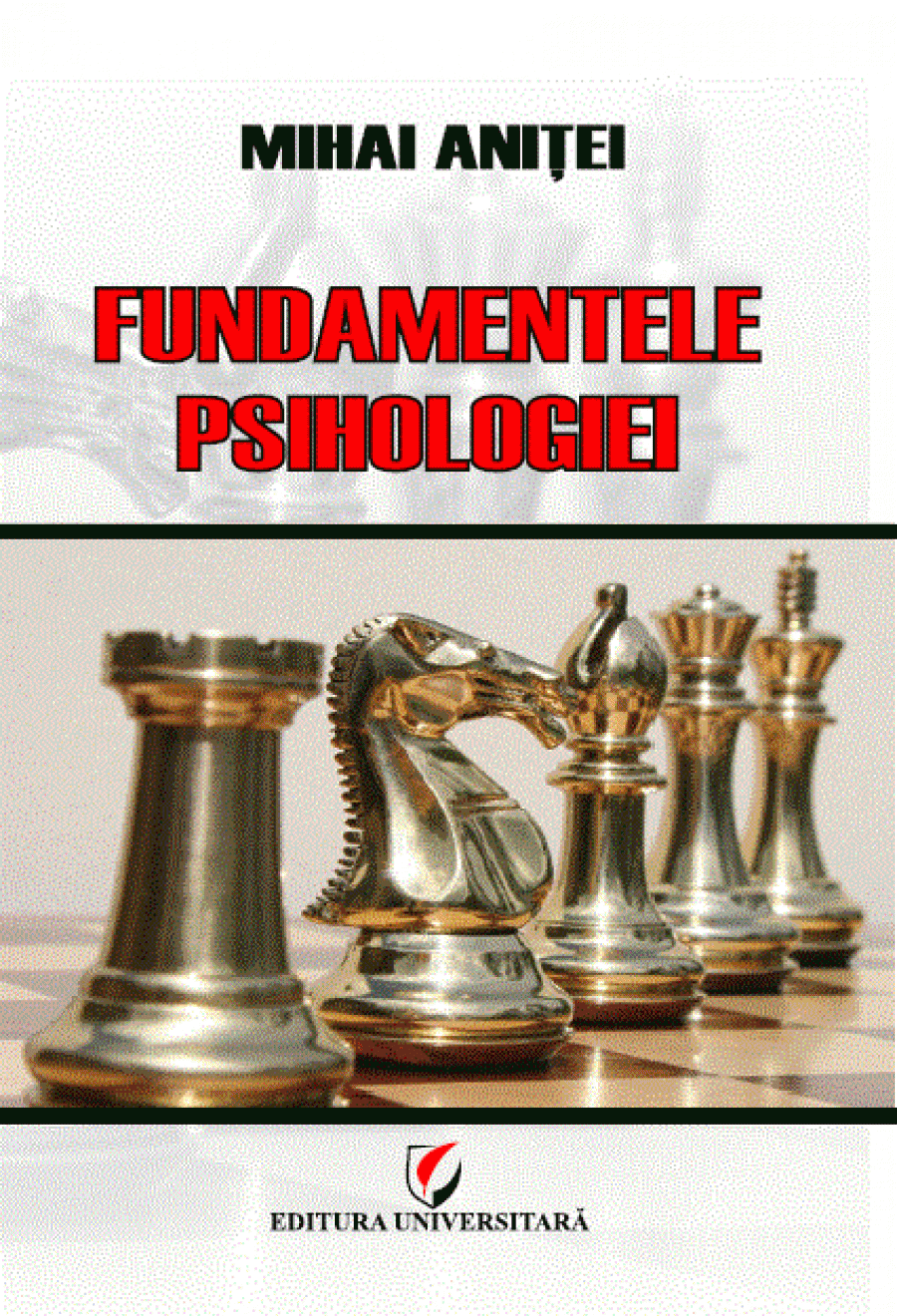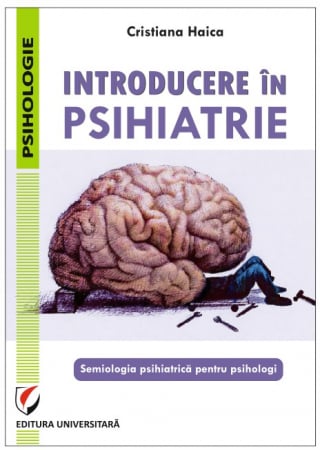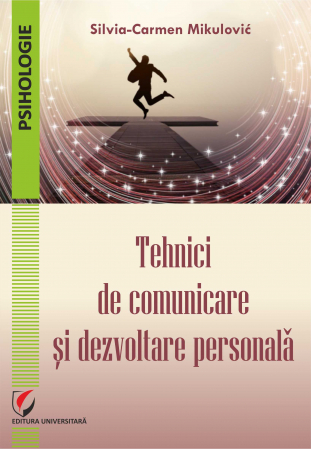Propuneri manuscrise: [email protected]: 0745 204 115
Urmărire comenzi Persoane fizice / Vânzări: 0745 200 357 / Comenzi Persoane juridice: 0721 722 783
ISBN: 978-606-28-0379-7
DOI: 10.5682/9786062803797
Anul publicării:
Pagini: 508
Editura: Editura Universitară
Autor: Marius Milcu, Margarida Gaspar de Matos, Ilie Puiu Vasilescu
- Descriere
- Download (1)
- Cuprins
- Autori
- Review-uri (0)
Throughout its evolution, science has always vacillated between two fundamental aspects (its quantitative and its qualitative aspects). Specialists' concerns have moved cyclically from one aspect to the other. However, never has there been exclusive stress on either quantitative or qualitative issues. Even if an unequally, science have always taken into consideration both aspects, given that the psychological, social, medical, educational or organizational reality cannot be explained in a satisfactory manner by resorting exclusively to either quantitative or qualitative research.
Unfortunately, no universally valid recipe for research in modern science has been discovered yet. In other words, it is difficult to determine exactly where the role of quantitative aspects ends and where the role of qualitative aspects begins. We wonder how much of the relevance of research is due to quantitative factors, to statistics and how much to qualitative, subjective interpretations? Or, equally well, we may wonder to what extent the objective conditions of assessing and carrying out successful research are backed by the flair and professional expertise of practitioners?
If the last two decades of the previous century witnessed an undisputed prevalence of quantitative aspects in science, the beginning the new century seems to be showing a surprising return of qualitative research. More and more scientific events are devoted to qualitative aspects in the study of various fields.
TARGETS OF THE CONGRESS
Our primary target includes the gathering of specialists, of highly skillful practitioners in the field, with a view to exchanging information. We aim at providing specialists with the opportunity to present their work, to reveal their latest research methods and instruments, to achieve intensive informational exchange, to the benefit of all taking part, as well as of psychology as a whole. Since the future of the profession lies in the hands of current students, our event will include a special section dedicated to our future colleagues. Our purpose is to facilitate the contact between students and highly praised specialists, to accustom them to the problematique of psychological research, to raise up the quality standards within training process, to contribute thus to the shaping of specialized knowledge and the enhancement of the experience of the students involved. Students will therefore benefit from specific scientific events, where they can reveal their own research work and projects, from round tables, trainings and workshops dealing with particularly interesting topics, all under the supervision of acclaimed specialists from various branches of psychology.
The city of Sibiu was nominated, for 2007, alongside with Luxemburg, as an European Cultural Capital. Thus becoming one of the bridges though which Europe will come to know Romania. The enlargement of the E.U. is likely to encourage the informational exchange between specialists, to promote the cultural, scientific, civic values under the auspices of the new 21st century.
TERMS OF ATTENDANCE
The event we are organizing is exclusively devoted to practical, applied, methodological issues in health, education and social sciences, connected to current research and its methodological, ethical, social, cultural implications. This is the main reason why we want to avoid theoretical, speculative activities. We are mainly interested in organizing practical, applied activities (workshops, debates), starting from topics of particular interest to the field of health, education and social sciences (psychology, sociology, pedagogy, medical sciences, etc.). Pares that have been already published in various magazines or presented at other scientific events can not be presented during scientific communication sessions.
CONDITIONS OF PARTICIPATION WITH The event is available to all professionals interes tSedC IinE tNhTe IpFroICpo PseAdP tEopRicSs , with a BA in health, education and social sciences (psychology, sociology, pedagogy, medical sciences, etc.) or not, as well as to those enrolled in various forms of education (undergraduate students, MA, or doctoral students).
SCIENTIFIC SECTIONS
I. LIFE QUALITY.
CLINICAL AND HEALTH PSYCHOLOGY
Personality and health
Illness perception. Managing illness
Family and health
Occupational health
Culture and health
Health promotion in society
Traditional and modern approach in health assurance
II. RESEARCH AND EDUCATION.
EDUCATIONAL PSYCHOLOGY
Research for Lifelong Learning
Research and education for entrepreneurship
Curricula design for education
Strategies for quality improvement in education
Social and public responsibility in modern education
-
Advanced Research in Health, Education and Social Sciences: Towards a better practice
Descarcă
TABLE OF CONTENTS /9
INDEX OF AUTHORS/ 13
Marius Milcu, Margarida Gaspar de Matos, Ilie Puiu Vasilescu.
Advanced Research in Health, Education and Social Sciences: Towards a better practice/ 19
SECTION 1. LIFE QUALITY. CLINICAL AND HEALTH PSYCHOLOGY
Chapter I. Simona C. Achim, Julian Achim. Addressing chronic orofacial pain: a biopsychosocial approach/ 29
Chapter II. Atudorei Anca-Laura. Group art-therapy for people with paranoid schizophrenia/ 35
Chapter III. Elena-Luminița Bouleanu. Psychological symptoms in a case of hypothyroidism: psychodiagnostic and intervention /47
Chapter IV. Nathália Brandolim Becker, Saul Neves De Jesus, Rui Marguilho, João Viseu, Karina Alexandra Del Rio, Gualberto Buela-Casal. Sleep quality and stress: a literature review
Chapter V. Camelia Dindelegan. The interdependence between alcoholism and aggression /63
Chapter VI. Gabriela Iorgulescu. Psycho-socio-cultural reasons and consequences of violence and aggression /71
Chapter VII. Crinela Turcu, Teodora Gavrilă. Using fairy tales in analytical psychological group intervention/ 79
Chapter VIII. Corneliu Moşoiu, Ruxandra Rășcanu. Ontology of executive dysfunction in psychosis/91
Chapter IX. Aurora Frunză. Personality and arterial hypertension – clinical study/ 95
Chapter X. Dan Orga-Dumitriu. Classification of gastric cancer/ 107
Chapter XI. Gabriela Iorgulescu. Types of patients in dental medicine practice. The management of the child patient/ 113
Chapter XII. Crinela Turcu, Teodora Gavrilă. Psychological type and mild depressive disorder. An analytical psychology approach/ 119
Chapter XIII. Rui Marguilho, Saul Neves De Jesus, João Viseu, Rita B. Domingues, Nathália Brandolim Becker, Rafaela Dias Matavelli, Raul Quevedo, Gualberto Buela-Casal. Sleep and creativity: a literature review/131
Chapter XIV. Ioana Porumb, Melania Mariana Macovei, Pănescu. Therapy and the skin: psychological dimensions of aO daenram Matoaldolgeinc disorder – case study/141
Chapter XV. Camelia Dindelegan, Ioana Vaida. The role of self acceptance in coping with domestic violence/ 149
Chapter XVI. Aurora Frunză. Clinical study regarding the implications of somatic status and lifestyle over cognitive function and longevity/ 157
Chapter XVII. Crinela Turcu, Teodora Gavrilă. Qualitative analysis of narrative processuality and themes of fairy tale plots in mild depressive disorder related to psychological typology/171
SECTION 2. RESEARCH AND EDUCATION. EDUCATIONAL PSYCHOLOGY/ 183
Chapter XVIII. Roxana-Petruţa Bucur. Emotional intelligence in the didactic activity/ 185
Chapter XIX. Flavia D. Cardaș. Personal development through dance and movement in the Romanian educational environment: a theoretical approach of expected improvements/193
Chapter XX. Mioara Constandin, Adrian Brate. Teacher motivation and emotional intelligence in elementary and special school /205
Chapter XXI. Alina Ramona Decsei-Radu, Anita-Margit Cioban. Selfinjury among inmates/ 211
Chapter XXII. Ioana Ancuța Franț. Quality in education from the perspective of the interdependence of initial formation – continual formation– evaluation. the case of primary school teachers/221
Chapter XXIII. Saskia Harkema, Florentin Popescu. Entrepreneurial education programme for refugee women: case-study/ 229
Chapter XXIV. Elena Mădălina Iorga, Dan Florin Stănescu. The role of mentalization in improving academic performance in the case of nontraditional students: a narrative intervention/239
Chapter XXV. Kulkanya Napompech. Perceptions of students toward the importance of attributes of mba professors/ 249
Chapter XXVI. Ramona Ştefana Petrovan. The role of emotional intelligence in the social development of pre-school children/ 255
Chapter XXVII. Mona Lisa Pislaru, Dan Pislaru. Curriculum design elements in the activity of Romanian support teachers/ 261
SECTION 3. SOCIAL ISSUES IN WORK PLACE. WORK AND ORGANIZATIONAL PSYCHOLOGY/269
Chapter XXVIII. Roxana Aldea-Capotescu, Corina Doroga. Women in the railway sector. a qualitative study /271
Chapter XXIX. Corina Doroga, Roxana Aldea-Capotescu. An analytical approach to preventing work related road accidents for romanian employees/ 279
Chapter XXX. Dorin Triff, Zorica Triff, Delia Mariana Ardelean. Occupational stress factors assessed according to workers’ individual features during periodical medical examinations in a trade unit and a secondary school/289
Chapter XXXI. Cristina Stefania Frîncu, Paul Sârbescu. Happy to leave? See why: a longitudinal study within the Romanian It&C Industry/297
Chapter XXXII. Alma Jeftić. Discrimination in employment: psychological aspects of recruitment and selection in public service/ 309
Chapter XXXIII. Marius Milcu. Particularities of inter-group relationships in modern organizations implications for leadership styles/ 317
Chapter XXXIV. Mihaela Stoica, Adrian Tudor Brate, Iuliana Stoica. Development of an instrument measuring patients’ trust in their doctors: Trust in Physician Scale/ 327
Chapter XXXV. Cristina Stefania Frincu, Cecilia Burlacu, Constantin Ticu. The impact of individual and organizational factors on employee turnover in the It&C Industry/337
Chapter XXXVI. Victorița Trif. Mathematical and moral sense of commercial/ 349
Chapter XXXVII. Dorin Triff, Delia Mariana Ardelean, Zorica Triff. Evaluation of occupational stressors by individual characteristics of workers in education, forestry and trade/ 355
Chapter XXXVIII. Irina Vastag (Vlăduțescu). The influence of communication style on the perception of an organizational culture within The Professional Emergency Services of Banat/ 363
Chapter XXXIX. Aziza Zhuparova. Comparative analysis of the management of open innovation: the Finnish experience and Kazakhstan practice/371
SECTION 4. DEVELOPMENT OF NEW RESEARCH / INTERVENTION METHODS. METHODOLOGY AND EXPERIMENTAL PSYCHOLOGY/373
Chapter XXXX. Radu Fritea, Adrian Opre, Ileana Fritea. Measuring motivational aspects of online learning: development and initial validation of a new instrument/375
Chapter XXXXI. Soraia Garcês, Margarida Pocinho, Jesus, João Viseu. Creative environment and vocational typ esS aul Neves De /385
Chapter XXXXII. Elena Ginghină. The role of the ug, of the input and of the age in second language acquisition/ 391
Chapter XXXXIII. Crenguţa-Elena Oprea, Andreea Stan. Why am i the only one who suffers? Bullying at elementary school: three case studies/ 403
SECTION 5. MISCELLANEOUS/415
Chapter XXXXIV. Ramona Elena Anghel. Risk and resiliency among adolescents from divorced families 417
Chapter XXXXV. Raluca Emilia Chirculescu. Methods and principles for transforming a polluting economy into a green and sustainable economy/ 427
Chapter XLVI. Peter Dan. Evil in familiar forms: anti-semitism, racism, totalitarianism, religious extremism/433
Chapter XLVII. Yasin Demirtaş. The concept of fear in the battlefield: a literature review/ 457
Chapter XLVIII. Vasile Dindelegan, Camelia Dindelegan. The notion of evil - theodicy – in theology and psychology/ 461
Chapter XLIX. Kled Kapexhiu. Repetition and content implications in advertising wear out. a practitioner’s view/ 471
Chapter L. Georgeta I. Mihai. Philosophical practice - a new trend in counseling / 477
Chapter LI. Maria Claudia Preda. Adopting associative structures, a solution for the transition to a modern rural area in Romania/ 485
Chapter LII. Vasile Dindelegan, Camelia Dindelegan. The unity of creation - psychological and theological perspectives/ 491
Chapter LIII. Hassan Shahraki. The hegemonic discourse of rural entrepreneurship: a phenomenological review /501
Margarida Gaspar de Matos
Ilie Puiu Vasilescu

6359.png)
![Advanced Research in Health, Education and Social Sciences: Towards a better practice [1] Advanced Research in Health, Education and Social Sciences: Towards a better practice [1]](https://gomagcdn.ro/domains/editurauniversitara.ro/files/product/large/advanced-research-in-health-education-and-social-sciences-towards-a-better-practice-600-239684.jpg)
